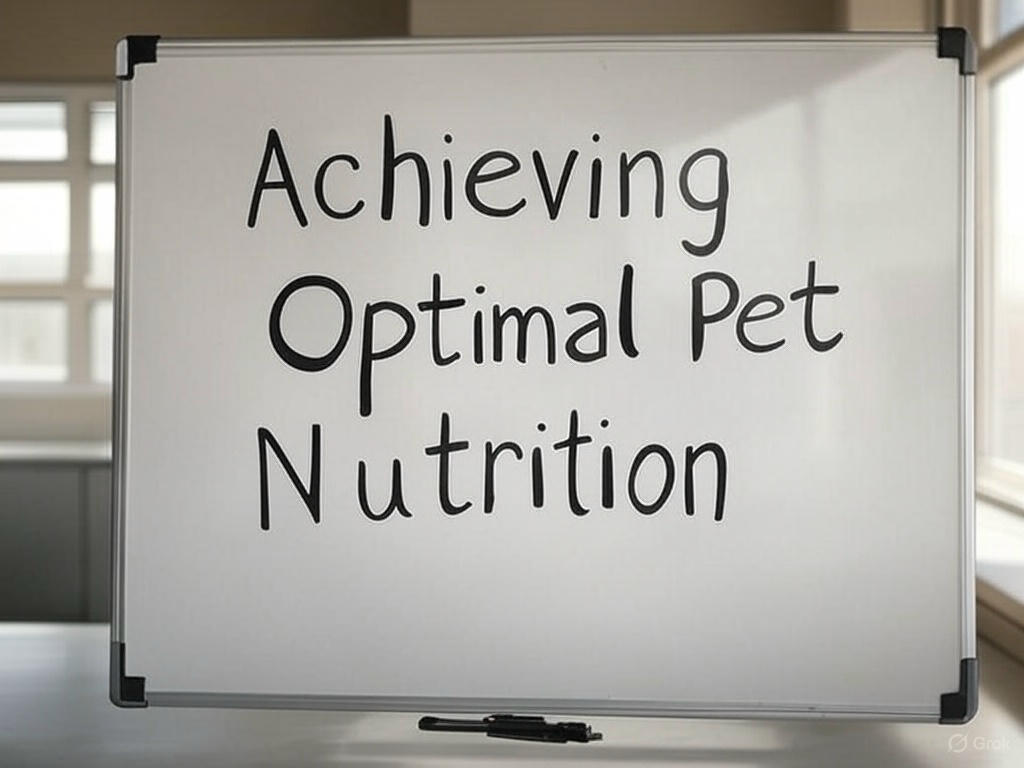Providing your pet with the right nutrition is not just about filling their bowl; it’s about supporting their health, energy, and overall well-being. Proper nutrition enhances everything from their immune system to their coat quality and digestive health. This blog explores a holistic approach to pet nutrition, focusing on new perspectives that contribute to your pet’s optimal health.
The Gut-Health Connection
Did you know that the health of your pet’s digestive system directly impacts their overall health? The gut plays a significant role in their immune function, mental health, and even skin condition. A healthy gut allows for the proper absorption of nutrients, which makes a balanced diet even more important.
Including fiber-rich foods, prebiotics, and probiotics in your pet’s diet can promote healthy digestion. Ingredients like pumpkin, sweet potatoes, and oats provide valuable fiber that aids in digestion and keeps things running smoothly. Additionally, probiotic-rich foods or supplements can help balance gut bacteria, which can be especially beneficial for pets with sensitive stomachs or those prone to gastrointestinal issues.
The Impact of Mental Well-Being on Nutrition
Nutrition isn’t just about physical health—it also affects your pet’s mental well-being. A well-nourished pet is a happier pet. Certain nutrients, such as omega-3 fatty acids found in fish oils, are known to have positive effects on mood and cognition. These nutrients can help reduce anxiety and even improve brain function, especially in older pets.
When selecting pet food, look for brands that offer natural sources of brain-boosting nutrients, such as DHA (docosahexaenoic acid) and EPA (eicosapentaenoic acid). These omega-3 fatty acids are found in fatty fish like salmon and mackerel and can help your pet remain sharp and emotionally balanced.
Tailoring Diet to Pet’s Breed-Specific Needs
Different breeds of pets have different nutritional needs, often due to size, activity level, and inherent health concerns. For example, large breed dogs may need food that supports joint health, while smaller breeds may require more calorie-dense options to maintain their energy levels. Likewise, pets with flat faces, like brachycephalic dog breeds (e.g., Bulldogs and Pugs), may need food that’s easier to chew and digest.
Breed-specific diets can support these particular requirements, ensuring that your pet’s food is tailored to their unique genetics. By investing in breed-appropriate nutrition, you can reduce the risk of breed-related health problems and improve your pet’s quality of life.
The Environmental Aspect of Pet Nutrition
More pet owners are becoming aware of the environmental impact of their pet’s food. Sustainable sourcing of ingredients is an important consideration in today’s world. Choosing pet food made from responsibly sourced ingredients or considering options that use plant-based proteins can help reduce the environmental footprint.
For instance, some pet food brands now offer meals made with insect protein, which is a more sustainable alternative to traditional animal proteins. These novel protein sources are not only environmentally friendly but also highly nutritious. As eco-conscious pet owners, exploring sustainable options benefits both your pet and the planet. If you’re curious about adding fruits to your dog’s diet, you might wonder, can dogs have blueberries, and whether they provide any health benefits or pose risks.
Rotational Feeding for Balanced Nutrition
Another approach to achieving optimal nutrition for your pet is rotational feeding. This involves rotating between different types of food to expose your pet to a variety of nutrients and flavors. Rotational feeding can prevent food sensitivities from developing, reduce boredom with their meals, and ensure they receive a broader spectrum of nutrients from different protein sources.
By rotating between different types of proteins (e.g., chicken, beef, lamb, or fish) or different food brands, you can ensure that your pet is receiving a diverse range of vitamins and minerals. However, when transitioning between foods, it’s important to do so gradually to avoid digestive upset.
The Importance of Treating Food Like Medicine
Incorporating food as medicine is an emerging trend in pet nutrition. Just like humans, pets can benefit from the therapeutic properties of certain foods. For example, turmeric is known for its anti-inflammatory properties, which can help manage joint pain in older pets. Similarly, certain herbs like parsley and mint can soothe digestive upset and even promote fresh breath.
Consulting with a holistic veterinarian or pet nutritionist can help you identify foods that have specific therapeutic benefits, creating a food plan that not only supports general health but also addresses any specific medical conditions your pet may have.
Regular Monitoring for Long-Term Success
Maintaining balanced nutrition is an ongoing process. As your pet ages or their activity levels change, their dietary needs will evolve. Regular check-ups with your veterinarian allow you to monitor your pet’s health and adjust their diet accordingly. This ensures they’re getting the right balance of nutrients for every stage of life.
Weight monitoring is particularly important, as obesity is a major concern in pets today. If your pet is gaining weight, you might need to adjust their food portions or switch to a different food that supports weight management.
Conclusion
Balanced nutrition is the cornerstone of your pet’s health. By focusing on digestive health, mental well-being, breed-specific needs, and sustainability, you can provide a holistic diet that supports every aspect of your pet’s life. Keep in mind that nutrition is not a one-size-fits-all approach; it requires understanding your pet’s unique needs and adapting their diet accordingly. With the right care, your pet will live a longer, healthier, and more fulfilling life by your side.






